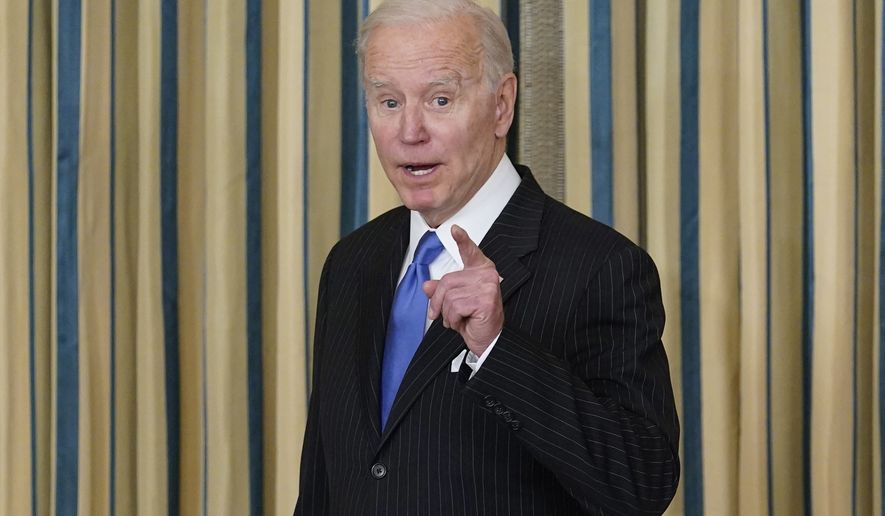The U.S. Postal Service monitored protesters across the country, snooping on Americans focused on issues involving guns and President Biden’s election, according to records obtained by The Washington Times.
Postal inspectors tracked the actions of gun rights activists gathering in Richmond, Virginia; people preparing to demonstrate against police in Louisville, Kentucky, after an investigation into the police shooting of Breonna Taylor; and far-right groups headed to the District of Columbia after Mr. Biden’s election.
Cato Institute senior fellow Patrick Eddington obtained the heavily redacted records detailing the postal inspectors’ spying from September 2020 through April 2021, including through covert social media surveillance called the Internet Covert Operations Program (iCOP).
The records provide a rare glimpse into the breadth and depth of the Postal Service’s surveillance apparatus, which Mr. Eddington said was capable of reaching into every home and business in the country.
“The Postal Service cannot reliably deliver mail to my own home, yet they can find the money and people to effectively digitally spy at scale, including on Americans engaged in First Amendment-protected activities,” Mr. Eddington said.
A redacted situational awareness bulletin released in response to Mr. Eddington’s Freedom of Information Act request showed the U.S. Postal Inspection Service tracked “peaceful armed protests” by Virginians demonstrating at a Second Amendment rally for “Lobby Day” in Richmond on Jan. 18, 2021.
“The gathering lasted approximately two hours, with members identifying themselves as affiliates of the Proud Boys, Boogaloo Bois and Last Sons of Liberty,” the postal inspectors’ bulletin said. “Counter-protesters from the Black Lives Matter movement also attended. With heavy law enforcement presence the demonstrations stayed peaceful in nature.”
A September 2020 bulletin from an analyst working on the social media snooping program noted that Louisville was operating under a state of emergency in anticipation of an announcement regarding the state’s investigation into Ms. Taylor’s death. Details of the analysis were redacted, as was the analyst’s name.
Postal inspectors’ social media surveillance also determined that a “Million MAGA March” set for Nov. 14, 2020, would cause traffic delays in the District, Maryland and Virginia and noted that the event had been posted on a “conservative forum.”
Other bulletins from postal inspectors show analysts following social platforms including Parler and Wimkin. The Postal Service assessed on Jan. 12, 2021, that the deplatforming of Parler likely disrupted coordinated protests planned for Inauguration Day, which postal inspectors compared to the riot on Jan. 6 at the U.S. Capitol.
Multiple bulletins created by the postal inspectors include disclaimers that the reports are not intended to infringe on Americans’ constitutional rights but to provide information to law enforcement about the potential for violence and criminal activity.
The postal inspectors’ reports also include a redacted threat to House Speaker Nancy Pelosi, California Democrat, and a redacted tweet threatening Postmaster General Louis DeJoy.
Asked about its surveillance of Americans, the U.S. Postal Inspection Service said its inspectors are federal law enforcement officers charged with protecting Postal Service employees, infrastructure and customers.
“The U.S. Postal Inspection Service occasionally reviews publicly available information in order to assess potential safety or security threats to Postal Service employees, facilities, operations and infrastructure,” the agency said in a statement.
The Postal Service inspector general said this year that the postal inspectors’ surveillance overstepped law enforcement authority and may not have had legal approval.
The inspectors disputed that conclusion.
“We determined that certain proactive searches iCOP conducted using an open-source intelligence tool from February to April 2021 exceeded the Postal Inspection Service’s law enforcement authority,” the Postal Service watchdog said in a March audit. “Furthermore, we could not corroborate whether other work analysts completed from October 2018 through June 2021 was legally authorized.”
The audit said the Postal Service agreed to conduct a full review of the analytics team, a new name for the iCOP program, before a targeted deadline of Sept. 30, 2022, and would ensure its inspectors’ online surveillance activities were authorized.
The Postal Service watchdog’s investigation was a response to a request from the top Democrat and Republican on the House Oversight and Reform Committee.
Mr. Eddington wants Congress’ oversight committees to investigate further and said he is appealing for the Postal Service to lift redactions on details of its spying on Americans.
He noted that the Postal Service kept a March 2021 bulletin largely censored, but Yahoo News already had published it without redactions. It showed postal inspectors examining “right-wing Parler and Telegram accounts” ahead of planned protests.
Mr. Eddington warned that people should not assume the Postal Service is the only federal agency snooping on their social media accounts.
Other private entities and state and local governments also have interests in tracking people’s social media usage. This week, The Dallas Morning News reported that at least 37 colleges had purchased a social media surveillance tool called Social Sentinel since 2015 and many had used it to track students’ posts, including about protests on campuses.
• Ryan Lovelace can be reached at rlovelace@washingtontimes.com.




Please read our comment policy before commenting.